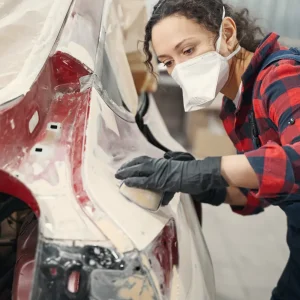If autonomous cars are set to change the world, then Nissan is certainly developing them in an appropriate way, with a truly global approach to its research.
The company is working on two projects – one a collaboration with NASA to take autonomous technology onto the streets of California, and the other involving vehicle connectivity trials more than 5,000 miles away in Japan.
The NASA project follows the production of the Nissan Seamless Autonomous Mobility (SAM) platform for managing fleets of autonomous vehicles, revealed last year. It uses technology developed for managing interplanetary rovers. An updated agreement, which sets out research activities to run into 2019, will see SAM developed and tested ahead of public implementation.
Maarten Sierhuis, director of Nissan’s research centre in Silicon Valley, said, “Our goal is to deploy SAM to help third-party organisations safely integrate a fleet of autonomous vehicles in unpredictable urban environments; for example, ride-hailing services, public transportation, or logistics and delivery services.
“The final stage of our research agreement with NASA will bring us closer to that goal and test SAM in a working demonstration on public streets.”
Eugene Tu, director of NASA’s Ames Research Center, said, “One of NASA’s strategic goals is to transfer the technology developed to advance NASA mission and programme objectives to broader commercial and social applications.
“Using NASA’s work in robotics to accelerate the deployment of autonomous mobility services is a perfect example of how the considerable work required to advance space exploration can also pioneer advances here on Earth.”
The research in Japan will see Nissan working with Continental, Ericsson, NTT DOCOMO, OKI and Qualcomm on trials of ‘cellular vehicle to everything’ technology, known as C-V2X. The idea is to connect a vehicle to other vehicles and infrastructure, using 5G network technology that is currently under development. This will allow the vehicle to ‘see’ further down the road, including around blind corners.
Tetsuo Sasaki, Nissan’s general manager for connected car and services engineering, said, “We expect this new communication technology to assist us to offer new safety and convenience features.
“With the data made available by this real-world trial, we will be able to accelerate our development to offer new services in a timely manner, once the 5G technology is available.”
Lars Schultheiss, vice-president and head of infotainment and connectivity at Continental in Japan, said, “Along with Nissan, we plan to show that close cooperation between automotive suppliers, manufacturers, mobile operators, infrastructure and chipset suppliers is of high importance to further advance and develop C-V2X.”
The newly announced projects feed into Nissan’s grand strategy for the future of motoring, which it terms Intelligent Mobility. The strategy aims to pursue a goal of zero emissions and zero road deaths through advances in driving, such as autonomous vehicles, advances in power, including electric vehicles, and advances in integration, including the sort of connectivity to be showcased by the SAM system and in the C-V2X trial.
According to Nissan, these strands of development build on features already available in its cars, and will lead to them being further enhanced in years to come.
A Nissan spokesman told BusinessCar, “Intelligent Mobility is already a reality in Nissans that are available today – in cars that park themselves, watch what’s happening around you and keep you safe with Nissan Safety Shield technologies.”
The spokesman explained that the new generation of the world’s bestselling electric car, the Nissan Leaf, which arrives next month, will feature two new Intelligent Mobility technologies.
The first, e-pedal, allows the driver to start, accelerate, decelerate and stop the car just by increasing or decreasing the pressure applied to the accelerator.
The second, ProPilot driver assist, can control steering, acceleration and braking during parking manoeuvres and in low-speed, single-lane driving.
The spokesman added, “Nissan will continue the roll-out of ProPilot autonomous technologies over the coming years, expanding it for use on motorways and at city junctions.”





